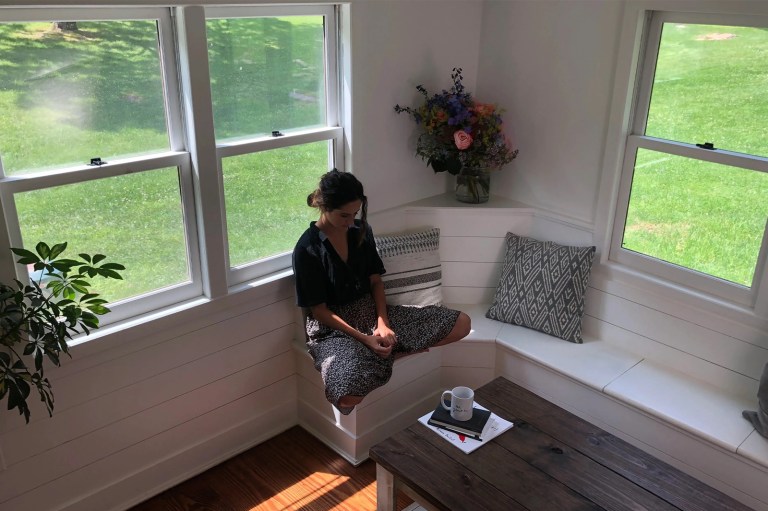
8 Ways To Help Someone Through Depression

A depressed brain isn’t just low levels of serotonin or a chemical imbalance. There is a little bit more to what happens to the brain when it is depressed. The connection between certain cells influences someone’s mood. But if you were to look at two brains, one that is depressed and one that isn’t one thing you would notice is a portion of the brain called the hippocampus which seems to be smaller than average. This area of the brain influences memories and emotions. As this part of the brain gets smaller neurons and transmitters begin to disappear.
When it comes to your gene pool there is a portion of it called the serotonin transporter gene the variation within the gene causes people to become vulnerable and depressed. You have two copies of these genes, one from both parents. While each gene varies in size either short or long, a study found that when someones is short they are inclined to have depression more than the average person.
So now that you understand a little bit about the science behind a depressed brain, the trick now is how do you help someone get through depression when there’s science you can’t control?
Because it isn’t as simple as, just feeling better or shaking it off, the task is to naturally increase someone’s neurons and transmitters.
To do that, emotional support is huge here and walking with these people through what many consider dark days can help.
Recently I was going through a pretty tough time. Understanding myself, the research I’ve done about the subject matter and tracking my moods over a long period of time, it seemed very clear what I was experiencing was seasonal depression. While most experience seasonal depression in the winter I was of the opposite spectrum, along with the 4-6% of the population to feel this in the summer.
While I was out partying and drinking and smiling at clubs like many 25-year-olds my age. I would think about how well I was at faking it and how no one but my close friends knew.
All the symptoms were there. Loss of appetite. Weight loss. Loss of interest. Hopelessness. Chronically exhausted no matter how much I slept. Pulling away from people I cared about.
As someone who doesn’t like allowing mental health to influence my every day, it was hard walking into my office some days and not caring or not wanting to be there when every day before that I looked forward to what I was doing.
As someone who really doesn’t believe in medication or altering any part of my brain regardless of it being different than others, I had always been able to pull myself out of these things. But I found myself popping pills walking around like a zombie and it made my depression 10X worse.
As someone who appreciates and values cognitive therapy, I didn’t want that for myself. But there I was in a waiting room once a week, talking about things I didn’t want to.
But it was in those weeks a select few people helped me out of it. In was in those few weeks when I truly needed help a select few rose to the occasion.
1. Understand the depressed version of themselves isn’t really them.
I remember saying things that just didn’t sound like me. Rereading messages now and realizing how unfamiliar I was. I looked the same, sounded the same but nothing about who I was in that time was me.
Understand someone on their worst day isn’t an accurate depiction of who they actually are. Understand that along with the lies they are telling you, there 100 more things they are saying to themselves that aren’t true but depression is trying to drag them deeper into believing it.
2. Listen when they want to talk.
There will come a point where even if they can’t make sense of the things they are feeling, they’ll explain it to you if you ask. And sometimes there aren’t answers to these questions but there is a comfort in knowing they aren’t alone in it.
3. Support them when they ask for help.
Asking for help is the hardest part about coming to terms with depression. When you get to that point of finally finding the courage to walk into someone’s office or call a doctor, at this point you’re trembling and scared and uncertain. What is familiar to you is staying in bed enduring this pain, what is unfamiliar is confronting it head on.
4. Praise them even though they don’t believe it.
If depression had and actual voice it would sound something like:
“You are worthless.”
“You aren’t good enough.”
“You aren’t pretty enough.”
“You aren’t smart enough.”
“You will fail.”
Counter all of that. To build someone up who is knocking themselves down is not an easy task but it’s one of the best things you can do.
5. Don’t take it personally when they cancel.
Sometimes they just don’t have the energy to do average tasks. They don’t have the energy to make it out on a Friday night. And maybe they shouldn’t be alone with their thoughts but being out won’t make them escape that either. To be in a crowd full of people and feel lonely is a worse feeling than staring at your ceiling and wanting to just go to sleep.
6. Keep in touch with them.
It was a text message of how are you?
It was a tag that added just a little bit of hope to everything that felt hopeless within me.
It was a call once a week.
It saved me from myself.
Because sometimes someone with depression won’t tell you, I appreciate you. I value you. Instead, they will count their blessing that you exist and love them while they are still learning to love themselves.
And something so simple does help.
7. Talk about daily goals.
As someone who is highly motivated, it was really hard to just lay in bed for long periods of time. It was really hard to not care about taking care of myself. Physically. Mentally. Emotionally.
And the goals weren’t great accomplishments I was used to. It was simple things.
“Did you eat today?” That doesn’t seem like something to be proud of but when basic necessities don’t even compare to the pain you are feeling inside, it’s not easy.
“Did you sleep through the night?”
But the best thing you can do is congratulate the small battles.
8. Tell them, “I’m here.”
Two words are all it takes sometimes. ![]()











